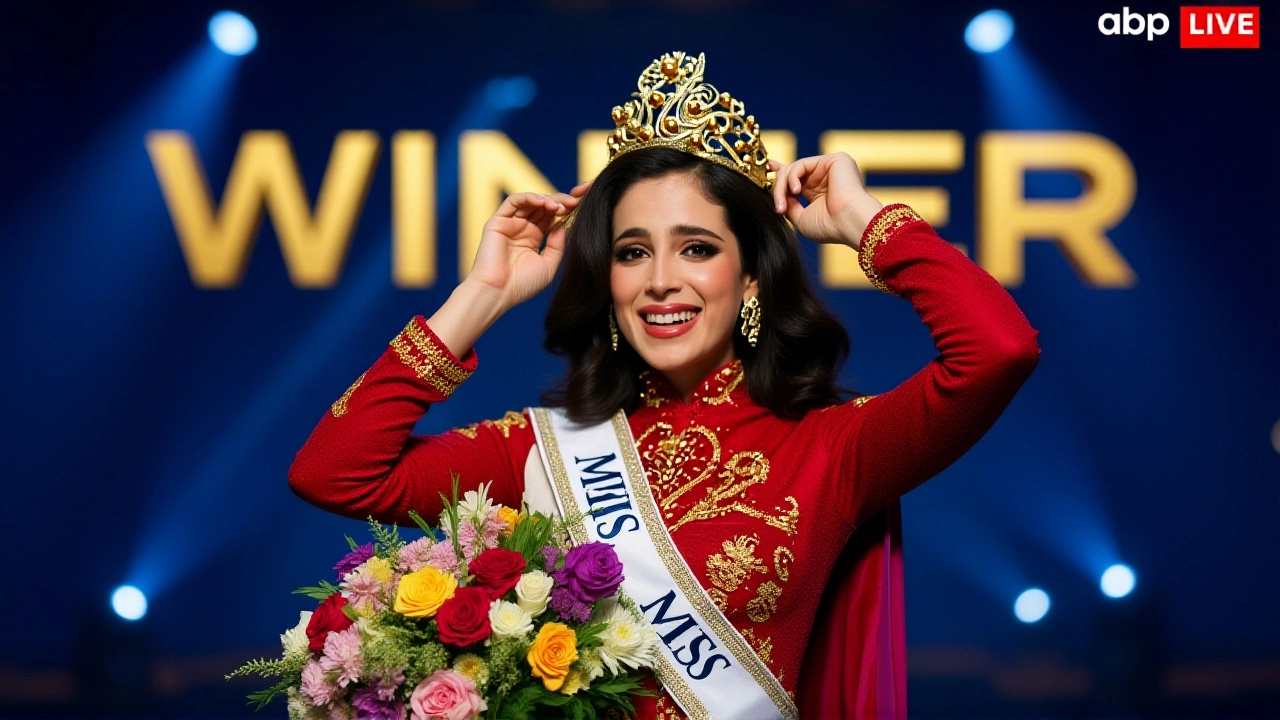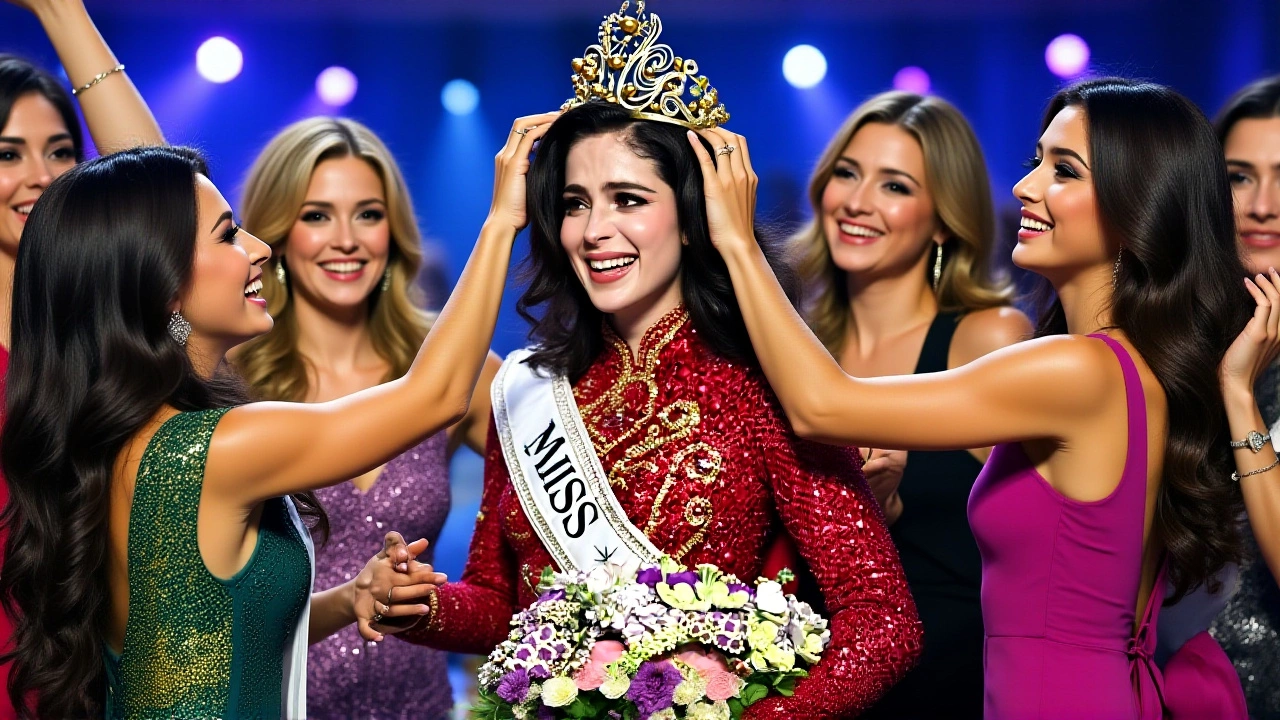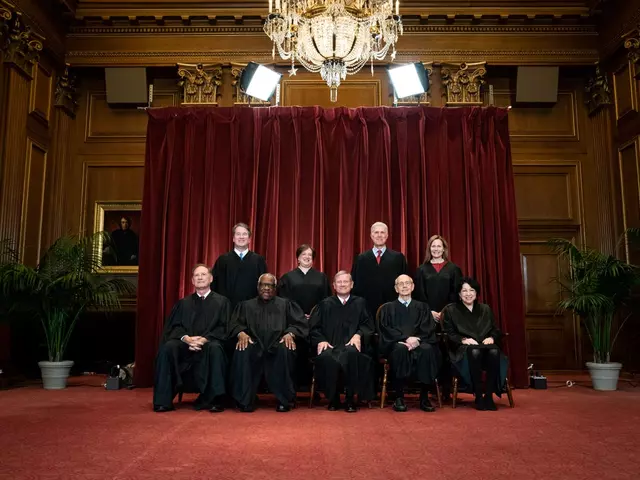When Fátima Bosch Fernández stepped onto the stage in Bangkok on November 21, 2025, she didn’t just win a crown—she reclaimed her dignity. The 25-year-old humanitarian from Teapa, Tabasco, Mexico, was crowned Miss Universe 2025Bangkok after a stunning comeback following a public humiliation that sparked a contestant walkout. The moment was electric, not just because of the glitter and gowns, but because of what came before it: a live-streamed outburst by Nawat Itsaragrisil, director of the Miss Universe Organization, who called her a "dummy" during pre-pageant training. The insult didn’t just wound Bosch Fernández—it ignited a rebellion.
A Quiet Girl from a Place No One Expected
Teapa, Mexico, isn’t on the global pageant map. Nestled in the humid lowlands of Tabasco, it’s known for cacao farms and slow rivers, not runway lights. Yet Bosch Fernández, raised in a Catholic household with roots tracing back to Catalan-German migrants, began her journey in 2018 by winning Flor Tabasco—a local beauty contest few outside the state had ever heard of. By 2025, she’d become the first woman from Tabasco to win Miss Universe Mexico, a feat that stunned national observers. "No one in my town thought I’d make it this far," she told reporters backstage. "Not even my abuela." Her humanitarian work—volunteering with rural girls’ education programs in southern Mexico—set her apart from candidates focused on glamour alone. And when the scandal broke, the world didn’t just feel sorry for her. They rooted for her.The Walkout That Shook the Pageant World
Three weeks before the finale, during mandatory rehearsals in Bangkok, Itsaragrisil held a live-streamed Q&A with finalists. Cameras rolled as he grilled Bosch Fernández on her preparation, then snapped, "You’re not ready. You sound like a dummy." The room went silent. Within minutes, six contestants—representing Venezuela, the Philippines, Ivory Coast, Thailand, South Korea, and Nigeria—walked out in protest. Social media exploded. #MissUniverseWalkout trended in 47 countries. By morning, over 2 million people had signed an online petition demanding Itsaragrisil’s removal. "It wasn’t about one person," said Stephany Abasali of Venezuela, who later placed second. "It was about every girl who’s been told she’s not enough. We walked out because we refused to be part of a system that normalizes that." The Miss Universe Organization issued a vague apology, calling the incident "regrettable," but took no disciplinary action. No suspension. No investigation. No statement from Itsaragrisil himself. The silence spoke louder than any press release.
"Never Let Anyone Make You Doubt Your Worth"
On the night of the finale, as the final five were called, Bosch Fernández stood calm, her eyes steady. When asked how she’d use her platform to empower young girls, she didn’t dodge the elephant in the room. "Believe in the power of your authenticity," she said, voice clear and unwavering. "Your dreams matter. Your heart matters. Never let anyone make you doubt your worth." The crowd rose to its feet. Viewers in Mexico City, New Delhi, Lagos, and Toronto erupted. TikTok clips of her answer garnered 18 million views in 24 hours. Her answer wasn’t just a response—it was a manifesto. Her win made her the fourth Mexican woman to claim the Miss Universe title, following Lupita Jones (1991), Ximena Navarrete (2010), and Andrea Meza (2020). But unlike her predecessors, Bosch Fernández didn’t just represent beauty. She represented resilience.The Ripple Effect: Who’s Affected and What’s Next?
The scandal has cast a long shadow over the pageant’s future. Contestants from India, Nigeria, and Brazil have already hinted they may boycott the 2026 event unless leadership changes. The Miss Universe Organization, headquartered in the U.S. but operating globally, now faces pressure from sponsors like L’Oréal and Coca-Cola, who quietly requested internal reviews. "We invest in empowerment," one executive told Cosmopolitan. "Not humiliation." Meanwhile, Bosch Fernández has pledged to launch a global initiative called "Authentic Voices," partnering with UNICEF to fund youth mental health programs in 10 countries by 2027. "I didn’t come here to be perfect," she said. "I came here to be real." The 2025 pageant marked the 74th edition and the second straight year held in Southeast Asia. Thailand’s Praveenar Singh, the 1st runner-up, became the first Thai-Indian finalist in history—a sign the competition is slowly evolving. But the real evolution, it seems, is happening offstage.
Why This Matters Beyond the Crown
Beauty pageants have long been criticized as relics—outdated, superficial, exploitative. But Bosch Fernández’s win flipped the script. She turned a moment of degradation into a global call for dignity. The walkout wasn’t just about one director’s words. It was about systemic disrespect toward women in spaces that claim to celebrate them. Her story echoes the #MeToo movement, but with glitter and gowns. It shows that even in the most curated environments, truth can break through. And when a girl from a small town in Tabasco stands up—not with anger, but with grace—and the world listens? That’s not just pageantry. That’s power.Frequently Asked Questions
How did Fátima Bosch Fernández’s background influence her win?
Coming from Teapa, Tabasco—a region never before represented in Miss Universe finals—Bosch Fernández’s rural roots and humanitarian work set her apart. Unlike many contestants with modeling backgrounds, she focused on education advocacy and mental health, which resonated deeply with global audiences. Her authenticity, forged in a community where pageants were unheard of, became her greatest strength.
What happened to Nawat Itsaragrisil after the walkout?
Despite global outcry and petitions calling for his removal, the Miss Universe Organization took no formal action against Itsaragrisil. He did not issue a public apology, nor was he suspended or investigated. His continued role has fueled criticism that the organization prioritizes image over accountability, potentially jeopardizing future sponsorships and contestant participation.
Why is Mexico’s win significant this year?
Mexico has won Miss Universe four times, but Bosch Fernández is the first from Tabasco and the first to win after publicly confronting systemic abuse in the pageant system. Her victory signals a shift—from beauty as performance to beauty as moral courage. It also reinvigorates Mexico’s status as a powerhouse in the competition, with wins in 1991, 2010, 2020, and now 2025.
Did any other countries boycott the 2025 pageant?
No countries officially withdrew, but several delegates privately expressed discomfort with Itsaragrisil’s leadership. Post-event, representatives from India, Nigeria, Brazil, and South Korea indicated they would reconsider participation in 2026 unless leadership changes. The Miss Universe Organization has yet to respond to these concerns publicly.
What’s the next step for Fátima Bosch Fernández?
She has announced plans to launch "Authentic Voices," a global initiative with UNICEF to support mental health and self-worth programs for girls in 10 countries by 2027. She also intends to speak at the UN Women’s Forum in 2026 and is in talks with publishers for a memoir about her journey from Tabasco to the global stage.
How did the public react to the walkout?
The walkout sparked a viral moment. Over 2 million people signed petitions demanding Itsaragrisil’s ouster. Social media platforms were flooded with testimonials from women sharing their own experiences of being belittled by authority figures. The hashtag #BelieveInAuthenticity became a global rallying cry, trending for over a week and even referenced in speeches at the World Economic Forum.




